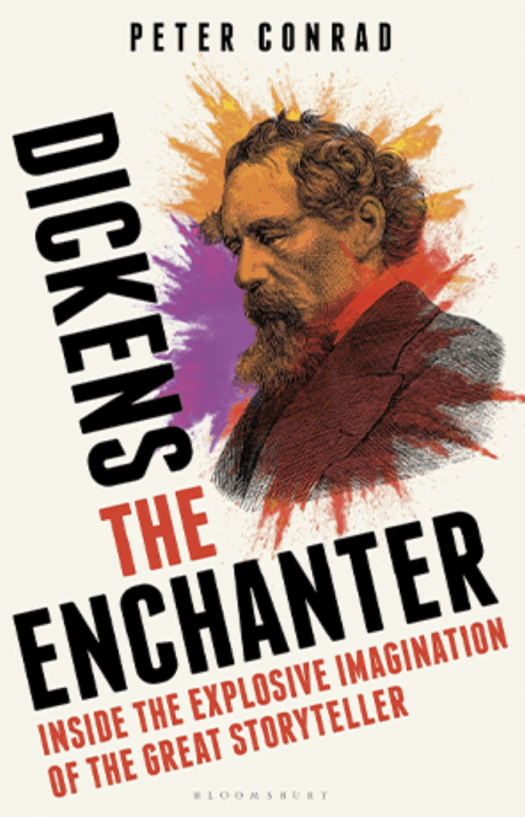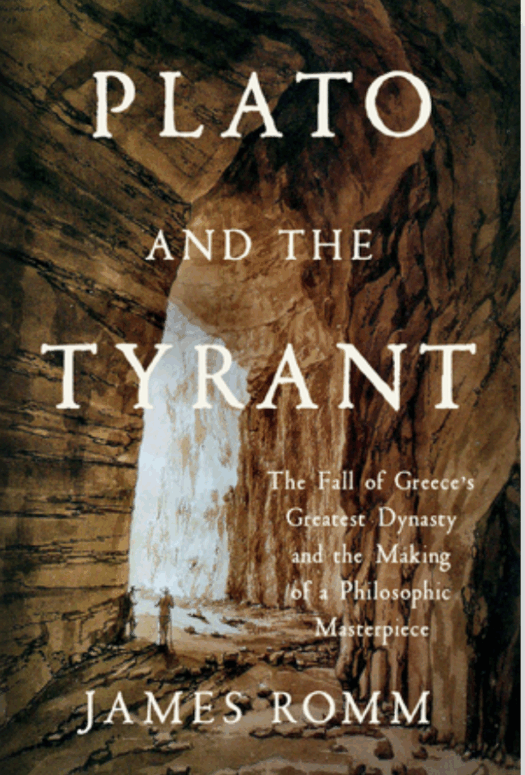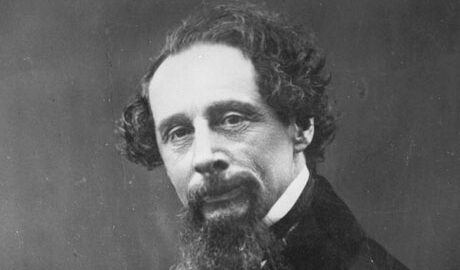Podcast: Play in new window | Download
Subscribe: Apple Podcasts | RSS
Writer’s Voice: compelling conversations with authors who challenge, inspire, and inform.
Episode Summary
In this episode of Writer’s Voice, we explore the lives and legacies of two giants—Charles Dickens and Plato—through the eyes of authors who reveal new dimensions of their work.
Cultural historian Peter Conrad tells us about his biography, Dickens the Enchanter: Dickens didn’t just depict Victorian society—he conjured an entire imaginative universe he called “Planet Dick.” Conrad examines Dickens as an enchanter, social critic, and visionary.
“What he was creating was not some sort of mirror or model of a world that already existed as other 19th century novelists were doing…He was creating an autonomous world, a world of his own, almost a science fiction world.” — Peter Conrad
Then, historian James Romm joins us to talk about Plato and the Tyrant. He shows how Plato’s philosophy wasn’t just abstract theory—it was shaped by his fraught entanglement with tyrants in ancient Syracuse. Romm uncovers how those experiences influenced The Republic and still echo in our contemporary struggles with democracy and authoritarianism.
“My students at Bard saw the dark side of the Republic, its authoritarianism, its interest in censorship, thought control, regulation of private life on a scale that I’ve compared in my book to that of modern North Korea.” — James Romm
Connect with WV:
Follow us on Bluesky @writersvoice.bsky.social and subscribe to our Substack. Or find us on Instagram @WritersVoicePodcast
Key Words:
Peter Conrad Dickens the Enchanter, Charles Dickens biography, Dickens Planet Dick, James Romm Plato and the Tyrant, Plato Republic, philosopher king, Syracuse Dionysius, democracy vs autocracy, Writer’s Voice Francesca Rheannon
You might also like: James Romm, THE SACRED BAND, James Romm, DYING EVERY DAY

Segment 1: Peter Conrad
In his book Dickens the Enchanter, Peter Conrad casts Charles Dickens as something more than a novelist—he’s a magician, a conjurer, almost a god-like creator. Conrad shows us how Dickens transformed his own turbulent experiences into a literary universe so vivid it became its own world—what he called “Planet Dick.”
The book explores both the light and dark sides of Dickens’s imagination: from his playful, almost mystical love of language, to the eerie visions that haunted his nights in London, and the spectral figures that filled works like A Christmas Carol. Dickens’s characters weren’t just inventions; they were his “visionary companions,” creatures he breathed into being with a kind of verbal sorcery.
And those creatures allowed him to shine a harsh and satiric light on the inequalities of British society at the height of the industrial revolution—the satanic mills, poorhouses and debtors prisons for the unfortunate masses while the upper class and its lackeys enjoyed a heartless prosperity.
Ultimately, Conrad paints Dickens as a writer who blurred the line between reality and dream, challenging conventional notions of truth, and endlessly reshaping the world through the sheer force of his imagination.
Key Topics
- “Planet Dick” and Dickens’ autonomous imaginative world
- The gothic darkness in Dickens’ early influence and later works
- Dickens’ social criticism: poorhouses, debtors’ prisons, and satire of politicians
- Language as mystical and creative force
- The haunting, dreamlike quality of Dickens’ imagination
About the Author
Peter Conrad has taught English literature at Oxford University and elsewhere and is the author of numerous books, including The Everyman History of English Literature, Creation: Artists, Gods & Origins; and Modern Times, Modern Places: Life and Art in the Twentieth Century.

Segment 2: James Romm
We last spoke with classic historian James Romm in 2021 about his book The Sacred Band. It’s about the 300 Theban Lover/soldiers who fought to defend Ancient Greek democracy.
Today on Writer’s Voice, we talk with Romm again, this time about how one of the world’s greatest philosophers, Plato, wrestled with notions of democracy and autocracy—not only intellectually but also as a man caught up in the messy politics of his time.
In his new book Plato and the Tyrant, Romm takes us to ancient Syracuse, where Plato found himself entangled with two tyrannical rulers—Dionysius the Elder and Dionysius the Younger. Romm argues that these real-world encounters didn’t just test Plato’s ideals, they may have reshaped them.
In fact, he suggests that the Republic—long seen as the pinnacle of abstract philosophy—was also Plato’s attempt to grapple with, and perhaps even cover over, his own political missteps. Along the way, the book revives the forgotten story of Syracuse, once one of the most powerful states of the Greek world.
Key Topics
- Plato’s encounters with Dionysius the Elder and Younger in Syracuse
- The Republic and the philosopher king ideal
- The influence of Plato’s letters, especially the 13th
- The shift from philosopher-king to “second-best” rule by law in The Laws
- Parallels between ancient autocracy and modern authoritarianism
About the Author
James Romm is the James H. Ottaway Jr. Professor of Classics at Bard College in Annandale, NY. He specializes in ancient Greek and Roman culture and civilization. He is the author of numerous books, including Dying Every Day: Seneca At The Court of Nero.

